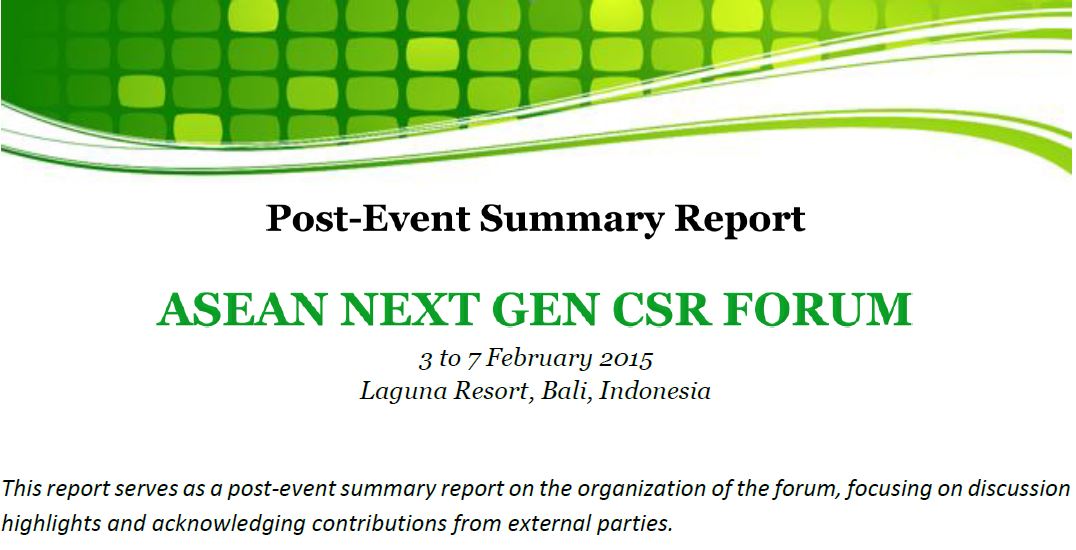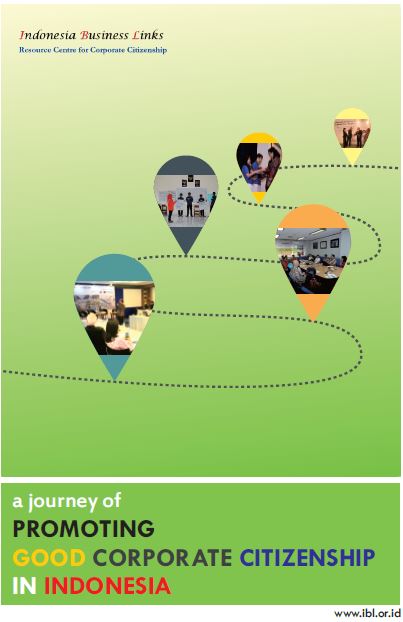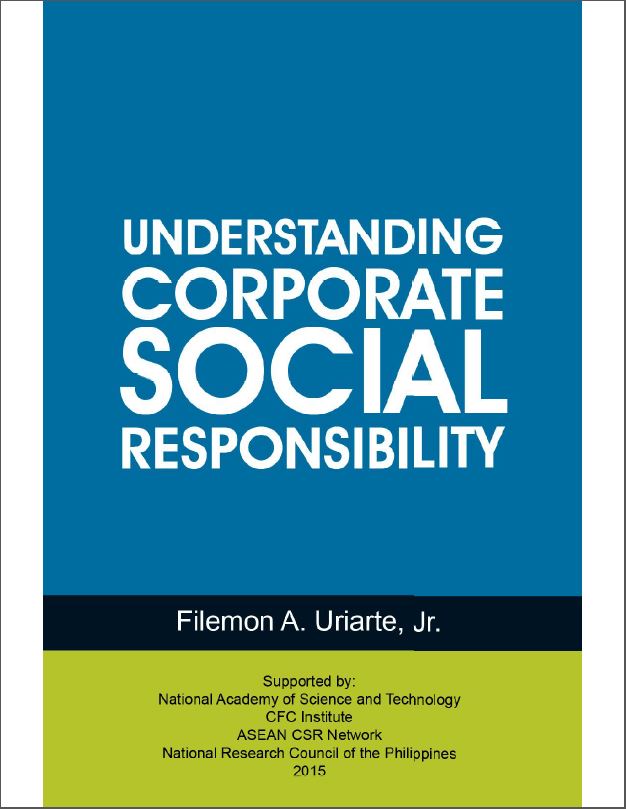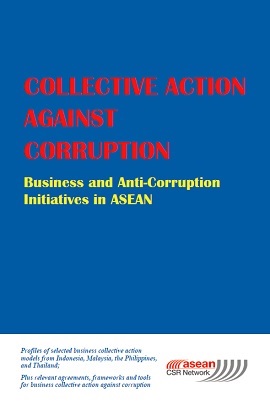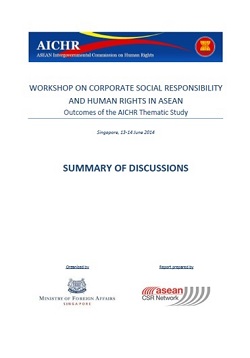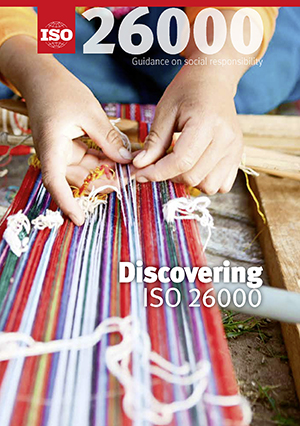Resources
| I. CSR in ASEAN: Practices & Reports |
|
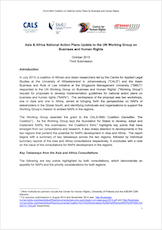 |
Asia & African National Action Plans Update to the Un Working Group on Business & Human Rights, third submission. To download the full document, click here. |
|
|
ASEAN Next Gen CSR Forum This is a post-event summary report on the organisation of the forum, focussing on discussion highlights and acknowledging contributions from external parties. To download the full document, click here. |
|
|
Journey of Promoting Good Corporate Citizenship in Indonesia This is a summary of Indonesia Business Links' activities over the years.Included in this reprt are their strategy and framework, the programmes they run, collective actions that have been organised by them and details on how to join in partnership with them as well as the benefits. To download the full document, click here. |
|
|
Understanding Corporate Social Responsibility This book's primary objective is to provide a better understanding of corporate social responsibiltiy, providing extensive reviews of concepts and principles such as the Caux Principles, Equator Principles, Sullivan Principles, Ceres Principles and the Carroll Pyramid. The book also presents the background and rationale for the formation of the ASEAN CSR Network. To download the full document, click here. |
|
|
Collective Action Against Corruption Business and Anti-Corruption Initiatives in ASEAN This is a reference on initiatives in ASEAN on collective action agains corruption. The case studies can serve as models for an ASEAN-wide collective action. The initiative is part of ther "Enabling Business Networks in ASEAN to Combat Corruption" Project implemented by the ASEAN CSR Network (ACN), supported by the United Kingdom Foreign and Commonwealth Office (UK FCO). To download the full document click here. |
|
|
Baseline Study on the Nexus Between Corporate Social Responsibilty & Human Rights - An Overview of Policies & Practices in ASEAN This thematic study of Corporate Social Responsibility (CSR) and human right is part of the ASEAN Intergovernmental Commission on Human Rights Five Years Work Plan. It provides an assessment on CSR as it relates to the promotion and protection of human rights in the ASEAN region Authors: Thomas Thomas & Alexander Chandra, Study Team on Business & Human Rights of the ASEAN Intergovernmntal Commission on Human Rights To download the full document click here. |
|
|
Workshop on Corporate Social Responsibility & Human Rights in ASEAN - Outcomes of the AICHR Thematic Study This is a summary of the discussions on the key findings of the Baseline Study for Corporate Social Responsibility (CSR) and Human Rights in ASEAN together with the presentations by the National Focal Points of ASEAN Member States on the state of play of CSR in the region. To download the full document click here. |
Report on CSR & Human Rights The following country reports are based on the 'Baseline Study on the Nexus Between Corporate Social Responsibilty & Human Rights - An Overview of Policies & Practices in ASEAN' above and gives an overview of the CSR & Human Rights situation in each country. Topics include the main CSR actors in the country, CSR policies and legislation, key drivers and priorities for CSR, public awareness of CSR and the main challenges to CSR. |
|
| Brunei | Indonesia |
| Philippines | Singapore |
| Thailand |
Vietnam |
| II. Social Responsibility Tools & Guidelines |
|
| 1. ISO 26000 Launched in 2010, ISO 26000 provides guidance on the ways in which businesses and organisations can operate in a socially responsible way. Unlike other ISO standards which requires certification, ISO 26000 only works as a guidance to assist firms to act in an ethical and transparent way that contributes to sustainable development, including the health and welfare of society. Aside from clarifying the definition of social responsibility, ISO 26000 also assists businesses and organisations translate principles into effective actions and allows the sharing of best practices relating to social responsibility at the global level. |
|
|
|
Social responsibility - Discovering ISO 26000 |
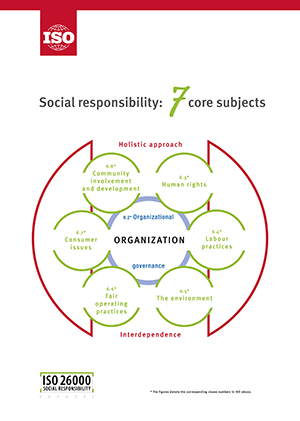 |
Social responsibility : 7 core subjects An A2 poster showing all 7 core subjects of social responsibility. To download the full document, click here. |
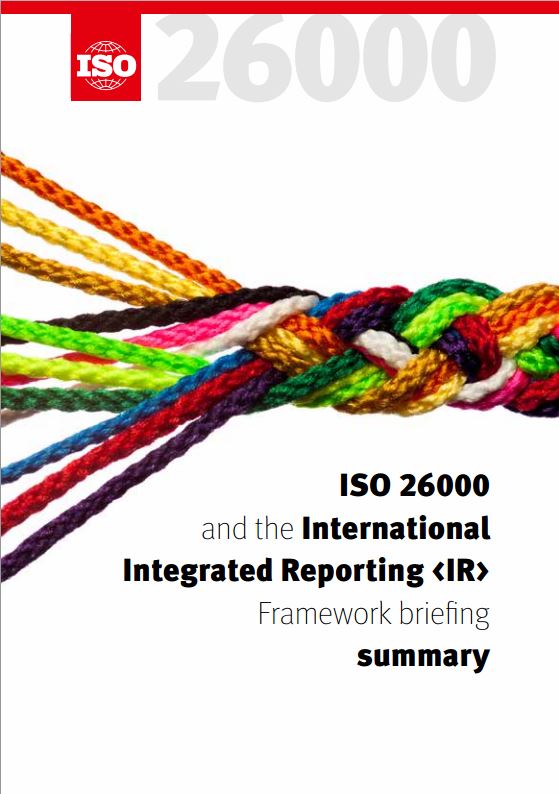 |
ISO 26000 and the International Integrated Reporting (IR) Framework |
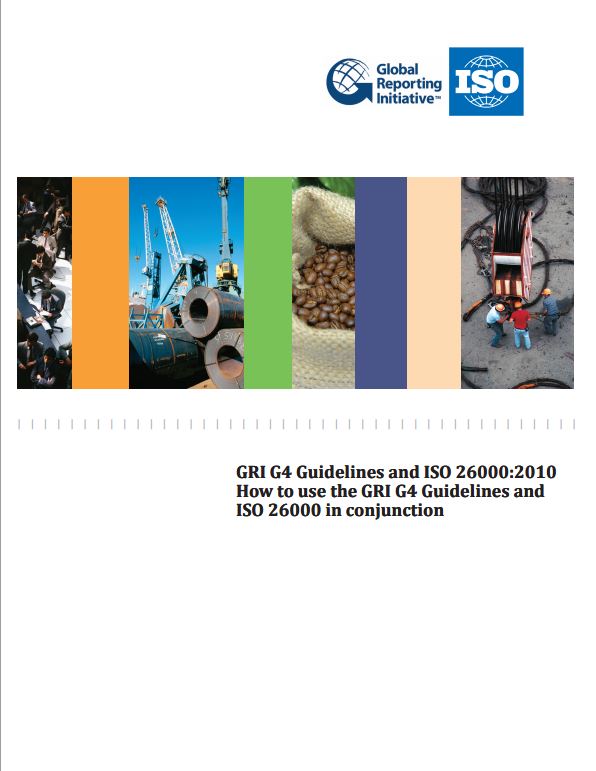 |
GRI G4 Guidelines and ISO 26000:2010 |
| 2. UNGC The UNGC is a strategic policy initiative by the UN to encourage businesses to align their operations |
|
 |
The Ten Principles of the UN Global Compact |
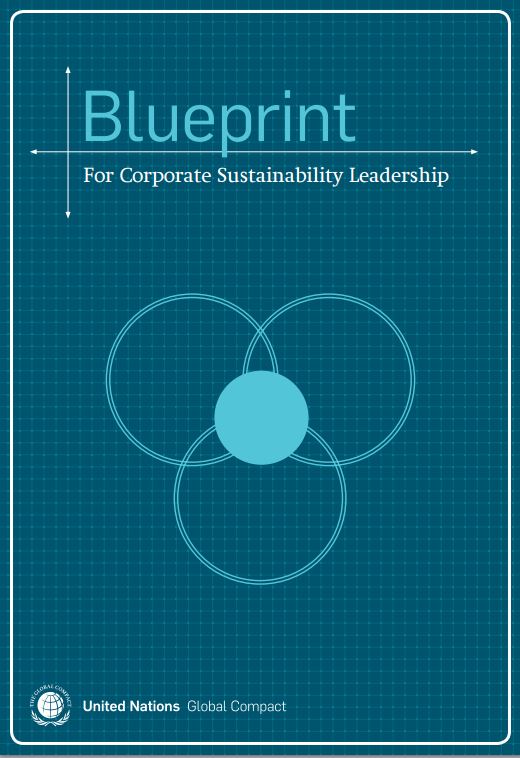 |
Blueprint for Corporate Sustainability Leadership within the Global Compact
The Blueprint is a model for leadership within the Global Compact, designed to inspire advanced performers to reach the next level of sustainability performance. It identifies criteria for leadership practice in three distinct but overlapping dimensions: (i) integrating the ten principles into strategies and operations; (ii) taking action in support of broader UN goals and issues; and (iii) engaging with the UN Global Compact; as well as cross-cutting components. |
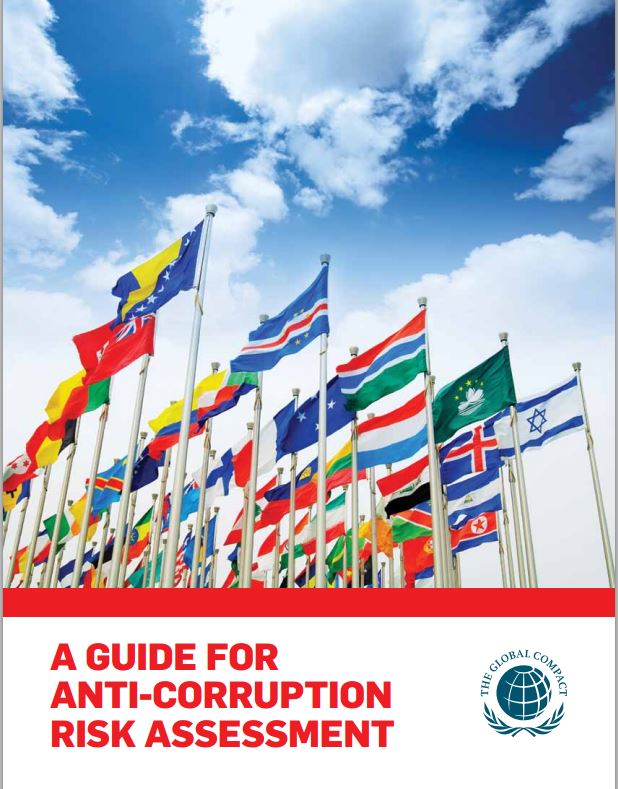 |
A Guide for Anti-Corruption Risk Assessment Seeks to provide a practical, step-by-step guidance on how to conduct an anti-corruption risk assessment. Includes a six-step process to complete the assessment: establish the process, identify the risks, rate the risks, identify mitigating controls, calculate remaining residual risk and develop an action plan. To download the full document, please click here. |
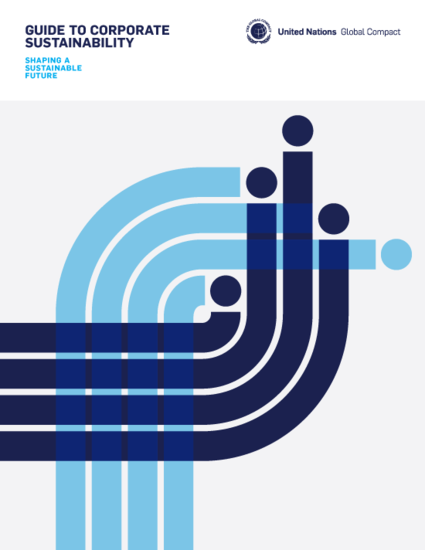 |
Guide to Corporate Sustainability: |
| 3. Global Reporting Initiative sustainability. More specifically, it promotes the use of sustainability reporting as a way for organisations to become more sustainable and contribute to sustainable development. Its sustainability reporting is also known as the Ecological Footprint Reporting, the Environmental Social Governance Reporting, the Triple Bottom Line Reporting, and the Corporate Social Responsibility Reporting. |
|
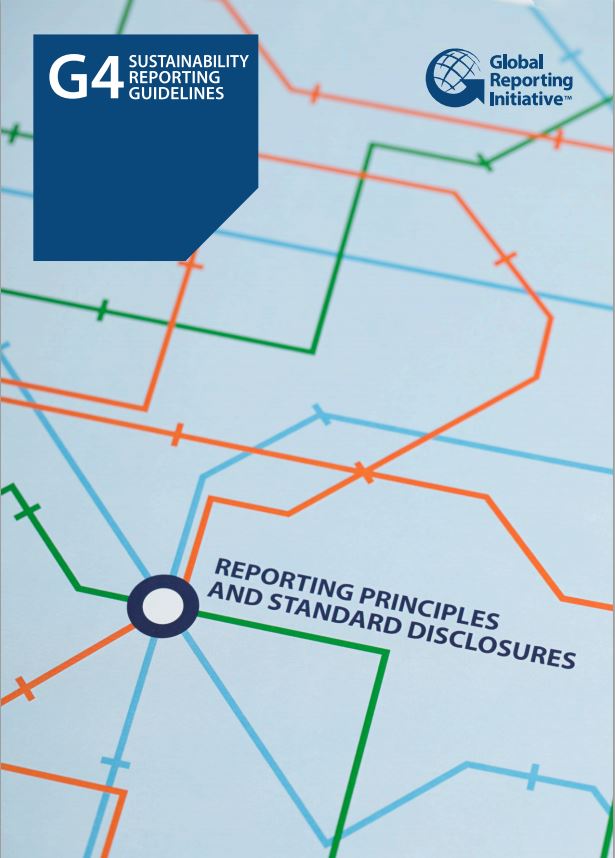 |
Reporting Principles and Standard Disclosures |
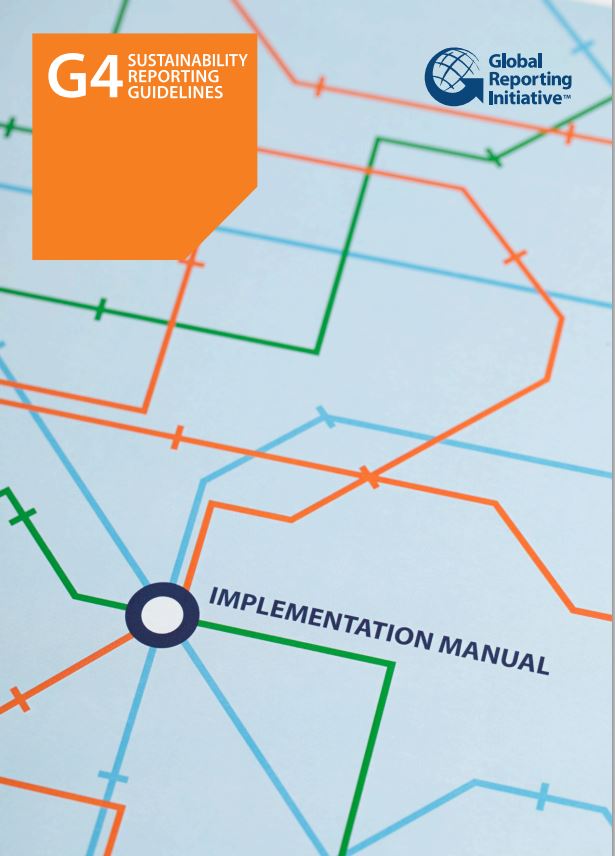 |
Implementational Manual The Implementation Manual – part 2 of G4 – is essential for preparing a sustainability report. It explains how to apply the Reporting Principles, how to prepare information, and how to interpret the Guidelines’ concepts. To download the full report, please click here. |
| III. Social Responsibility Tools and Guidelines |
|
| 1. Extractive Industries Transparency Initiative EITI is a global collaboration of governments, firms, and civil society to improve the openness and accountable management of revenues from natural resources. Countries that implement the EITI standard are expected to ensure full disclosure of taxes and other payments made by oil, gas, and mining companies to governments. These payments, subsequently, are to be published in the annual EITI report, which is available publicly. |
|
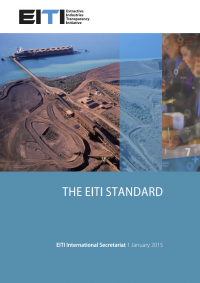 |
EITI standard The EITI Standard is the authoritative source on how countries can implement the EITI. It is the global transparency standard for improving governance of natural resources. The Standard was formally launched at the EITI Global Conference in Sydney 23-34 May 2013, following an extensive consultation process. To find out more details, please visit the page here. |
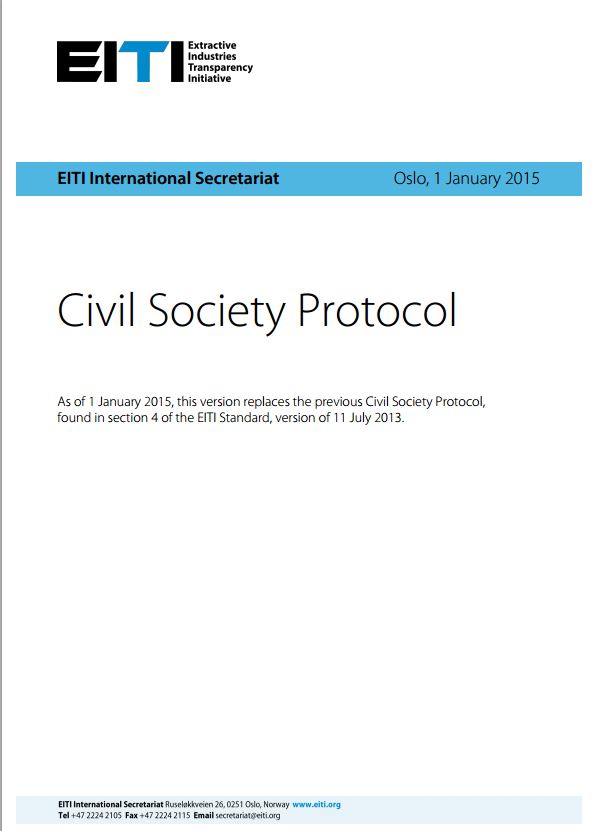 |
Civil Society Protocol The active participation of civil society in the EITI process is key to ensure that the EITI leads to greateraccountability. The Civil Society Protocol is part of the EITI Standard. This revised version is effective as of 1 January 2015 To download the full document, please click here. |
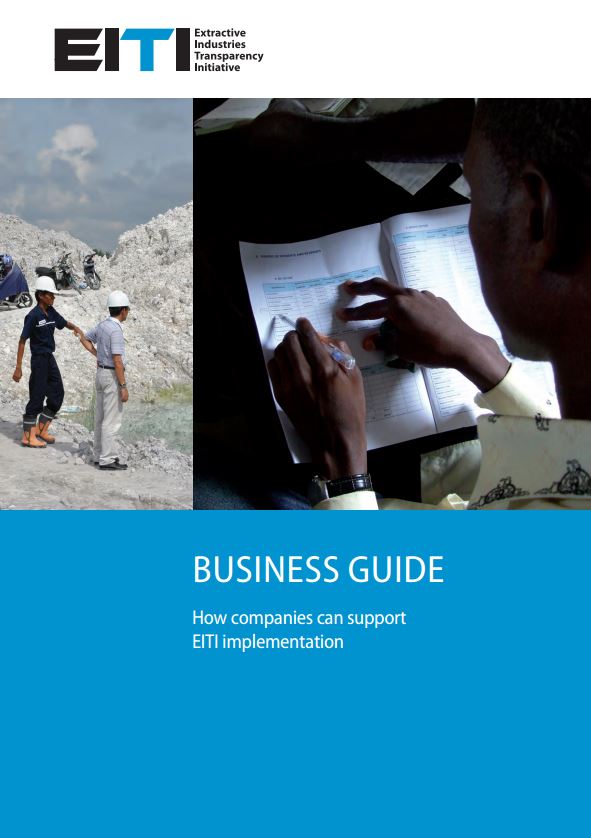 |
EITI Business Guide The revised Business Guide provides more hands-on guidance covering key elements of in-country EITI engagement and implementation, including EITI reporting. It explains ways companies can engage with the EITI process that are beneficial for their operations and what more companies can do. To download the full document, please click here. |
| 2. OECD | |
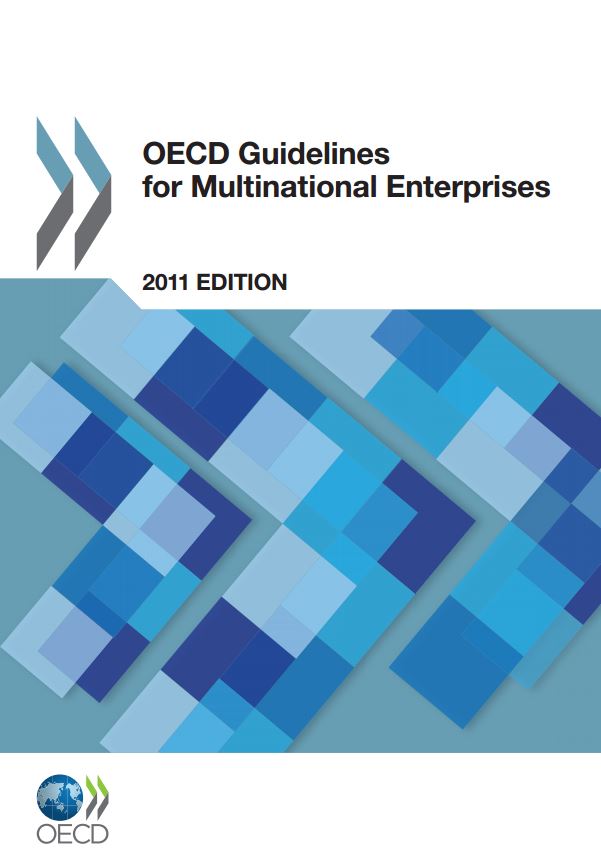 |
OECD Guidelines for Multinational Enterprises The Guidelines are far-reaching recommendations addressed by governments to multinational enterprises operating in or from adhering countries. They provide voluntary principles and standards for responsible business conduct in areas such as employment and industrial relations, human rights, environment, information disclosure, combating bribery, consumer interests, science and technology, competition, and taxation. To download the full guidelines, please click here. |
| 3. ILO | |
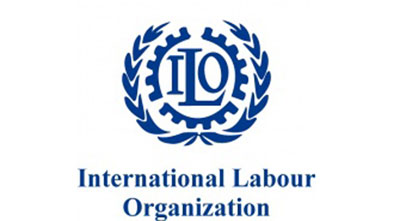 |
ILO Decleration on Fundamental Principles and Rights at Work Adopted in 1998, the Declaration commits Member States to respect and promote principles and rights in four categories, whether or not they have ratified the relevant Conventions. To find out more about the declaration, please click here. |
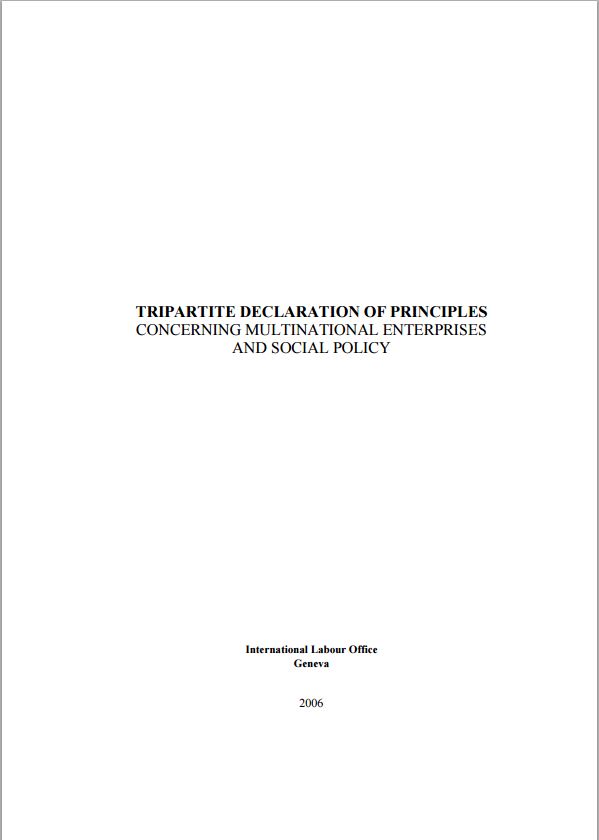 |
ILO Tripartite Declaration of Principles concerning Multinational To download a full copy, please click here. |
| IV. Business & Human Rights Tools and Guidelines |
|
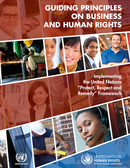 |
UNGP on business and human rights: This publication contains the "Guiding Principles on Business and Human Rights: Implementing the United Nations ‘Protect, Respect and Remedy’ Framework", which were developed by the Special Representative of the Secretary-General on the issue of human rights and transnational corporations and other business enterprises. To download the full document, please click here. |
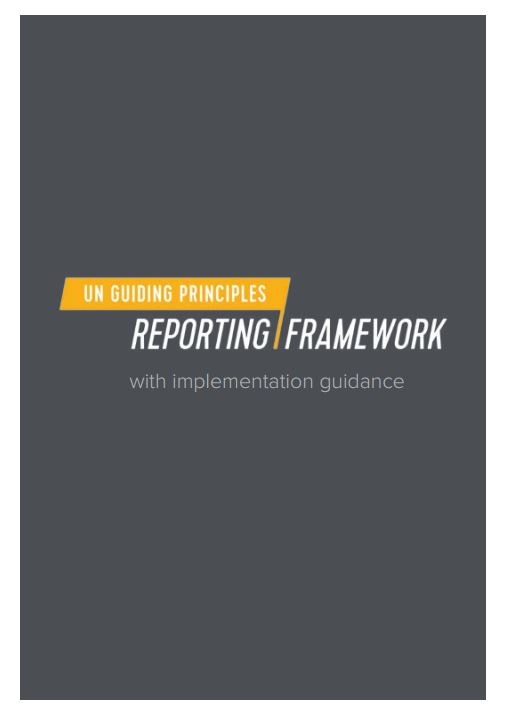 |
UNGP Reporting Framework The Reporting Framework provides a concise set of questions to which any company should strive to have answers in order to know and show that it is meeting its responsibility to respect human rights in practice. It offers companies clear and straightforward guidance on how to answer these questions with relevant and meaningful information about their human rights policies, processes and performance. To download the full document, please click here. |
 |
Business and Human Rights Reporting and Assurance Frameworks Initiative (RAFI) This is a project of Shift, together with Mazars, to facilitate a multi-stakeholder process to develop public reporting and assurance frameworks based on the UN Guiding Principles. To find out more, please click here. |
| V. Business and anti-corruption tools and guideline |
|
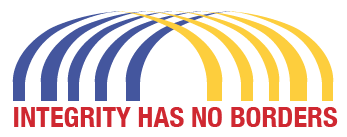 |
Integrity website: http://integrityhasnoborders.com/resource |

